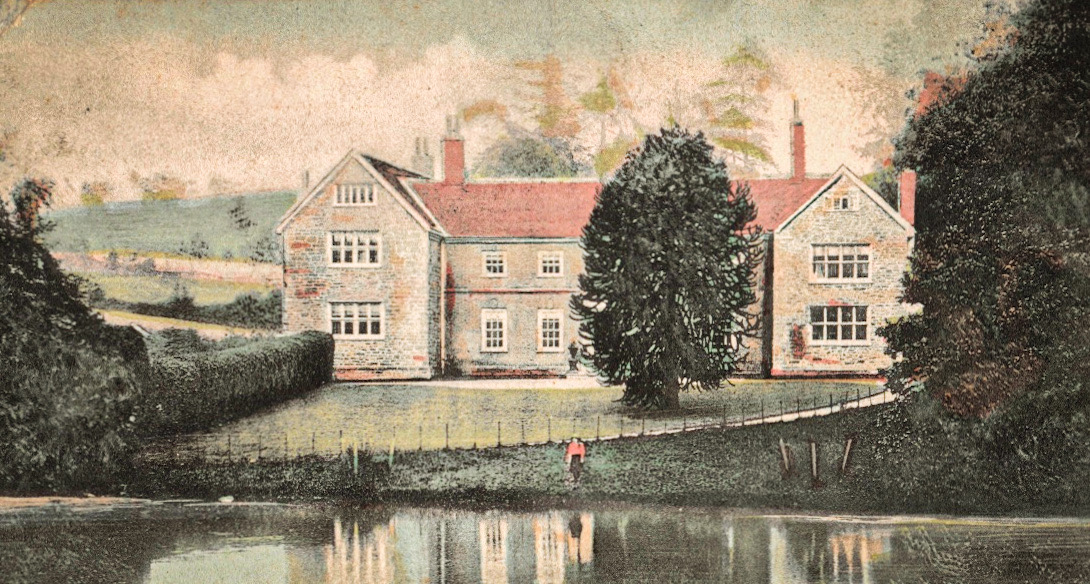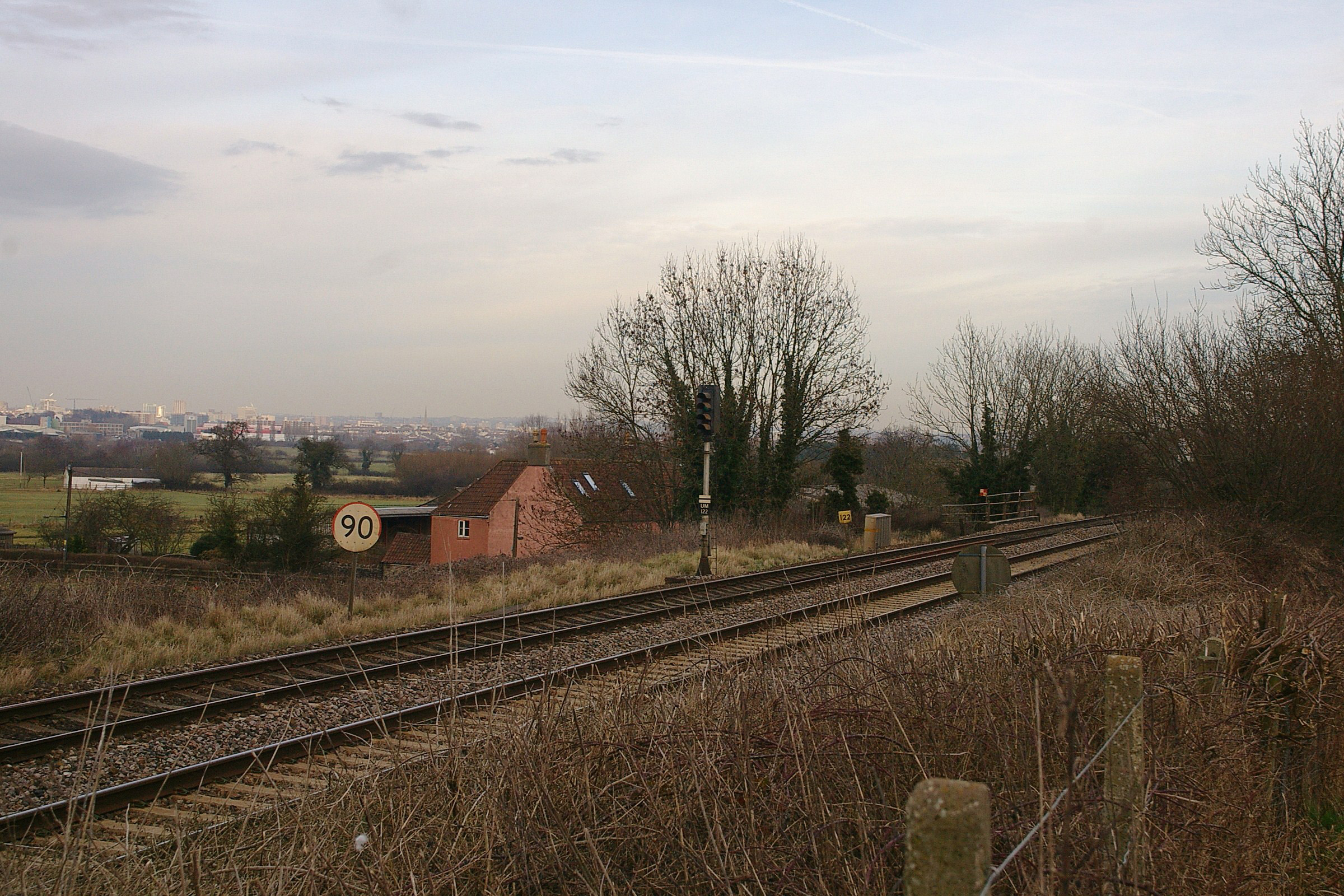|
Hele, Devon
Hele is a village in Devon, England, lying about SSW of Bradninch and NNE of Exeter, on the River Culm. The village is home to a paper mill once belonging to the company Wiggins Teape, now part of the multinational company Purico Group. The Devon Valley Mill produces sausage casing paper and teabag paper under the "Crompton Paper" brand name. The mill site was originally that of a grist mill which was converted to a paper mill in 1762. It was here that John Dewdney produced the first glazed writing paper in England in the 1840s. He was also famously called upon to supply the paper for the catalogues of the Great Exhibition in 1851. The nearby railway station, now closed, used to serve Hele and Bradninch Bradninch is a small town, civil parish and Manorialism, manor in Devon, England, lying about south of Cullompton. Much of the surrounding farmland belongs to the Duchy of Cornwall. There is an Wards and electoral divisions in the United Kingd .... References Exter ... [...More Info...] [...Related Items...] OR: [Wikipedia] [Google] [Baidu] |
Bradninch
Bradninch is a small town, civil parish and Manorialism, manor in Devon, England, lying about south of Cullompton. Much of the surrounding farmland belongs to the Duchy of Cornwall. There is an Wards and electoral divisions in the United Kingdom, electoral ward with the same name, which since May 2023 comprises the entire parish. The population was 2,165 in 2021. In 2012, in research of 2,400 postcodes in England and Wales which took into account 60 separate factors of interest to young families, Bradninch was found to be the fifteenth most family friendly location in the country. The town is twinned with Landunvez in Brittany and Downingtown, Pennsylvania. Toponymy The place-name 'Bradninch' is first attested in the Domesday Book of 1086, where it appears as 'Bradenese'; the name is thought to mean 'broad oak' or 'broad ash'. Seventy-nine different spellings of the name of the town have been recorded. History Anglo-Saxon Bradninch dates back to before the 7th century and at ... [...More Info...] [...Related Items...] OR: [Wikipedia] [Google] [Baidu] |
Devon
Devon ( ; historically also known as Devonshire , ) is a ceremonial county in South West England. It is bordered by the Bristol Channel to the north, Somerset and Dorset to the east, the English Channel to the south, and Cornwall to the west. The city of Plymouth is the largest settlement, and the city of Exeter is the county town. The county has an area of and a population of 1,194,166. The largest settlements after Plymouth (264,695) are the city of Exeter (130,709) and the Seaside resort, seaside resorts of Torquay and Paignton, which have a combined population of 115,410. They all are located along the south coast, which is the most populous part of the county; Barnstaple (31,275) and Tiverton, Devon, Tiverton (22,291) are the largest towns in the north and centre respectively. For local government purposes Devon comprises a non-metropolitan county, with eight districts, and the Unitary authorities of England, unitary authority areas of Plymouth City Council, Plymouth an ... [...More Info...] [...Related Items...] OR: [Wikipedia] [Google] [Baidu] |
Exeter
Exeter ( ) is a City status in the United Kingdom, cathedral city and the county town of Devon in South West England. It is situated on the River Exe, approximately northeast of Plymouth and southwest of Bristol. In Roman Britain, Exeter was established as the base of Legio II Augusta under the personal command of Vespasian. Exeter became a religious centre in the Middle Ages. Exeter Cathedral, founded in the mid 11th century, became Anglicanism, Anglican in the 16th-century English Reformation. Exeter became an affluent centre for the wool trade, although by the First World War the city was in decline. After the Second World War, much of the city centre was rebuilt and is now a centre for education, business and tourism in Devon and Cornwall. It is home to two of the constituent campuses of the University of Exeter: Streatham Campus, Streatham and St Luke's Campus, St Luke's. The administrative area of Exeter has the status of a non-metropolitan district under the administ ... [...More Info...] [...Related Items...] OR: [Wikipedia] [Google] [Baidu] |
River Culm
The River Culm flows through the Devon Redlands in Devon, England and is the longest tributary of the River Exe. It rises in the Blackdown Hills at a spring near RAF Culmhead in Somerset, and flows west through Hemyock, then Culmstock (in the Culm Valley) to Uffculme. The river turns south, through Cullompton (and alongside the M5 motorway), skirting the northern boundary of Killerton Park to join the River Exe on the north-western outskirts of Exeter. The name of the river is thought to mean 'knot' or 'tie', in reference to the river's twists and loops. Course of the river The River Culm begins in a marshy field near Culmhead (picture 1). Four and a half miles from its source the river (OS ST17501455) is 1.5m wide (picture 2). At Gladhayes the river passes under a two-arched bridge (picture 3). About half a mile further the river is joined by the waters of Madford River. From here the river continues to Culmstock, a village straddling both sides of the river where the ... [...More Info...] [...Related Items...] OR: [Wikipedia] [Google] [Baidu] |
Wiggins Teape
Arjowiggins was an independent paper manufacturer which at one time had mills in England, Scotland, France and the US. The company was liquidated in 2019, and several brands were acquired by Fedrigoni and Antalis among others. History The company's origins go back to 1761 when Buckland Mill in Dover in Kent commenced operations. Meanwhile, in France, in the middle of the 20th century there were four competing paper mills that manufactured sophisticated paper products with high added value, especially security papers (banknotes, passports, etc.). A joint merger plan was drawn up in 1954 and led to the formation of the first French paper-manufacturing group: Arjomari. The name of the group came from the first two letters of the names of the paper mills participating in the merger: Arches, Johannot, Marais, Rives. In 1890, Buckland Mill was bought by ''Wiggins Teape'', a paper milling business formed some 40 years earlier by Edward Wiggins and Henry Teape. In 1970, the company ... [...More Info...] [...Related Items...] OR: [Wikipedia] [Google] [Baidu] |
Disused Railway Stations (Bristol To Exeter Line)
There are 22 disused railway stations on the Bristol to Exeter line between and . The line was completed in 1844 at which time the temporary terminus at Beambridge was closed. The most recent closure was Tiverton Junction which was replaced by a new station} on a different site in 1986. 12 of the disused stations have structures that can still be seen from passing trains. Background The route was opened by the Bristol and Exeter Railway in stages between 1841 and 1844. In 1876 this company was amalgamated with the Great Western Railway which, in turn, was nationalised into British Railways in 1948. It is now owned by Network Rail. Apart from the temporary station at Beam Bridge which was only used for a year, the earliest closures were in the Weston-super-Mare area in order to provide new facilities for the traffic to that town, which was much greater than predicted when the line was planned. The majority of the remaining closures followed Dr Beeching's '' Reshaping of Br ... [...More Info...] [...Related Items...] OR: [Wikipedia] [Google] [Baidu] |
Villages In Devon
A village is a human settlement or community, larger than a hamlet but smaller than a town with a population typically ranging from a few hundred to a few thousand. Although villages are often located in rural areas, the term urban village is also applied to certain urban neighborhoods. Villages are normally permanent, with fixed dwellings; however, transient villages can occur. Further, the dwellings of a village are fairly close to one another, not scattered broadly over the landscape, as a dispersed settlement. In the past, villages were a usual form of community for societies that practice subsistence agriculture and also for some non-agricultural societies. In Great Britain, a hamlet earned the right to be called a village when it built a church.-4; we might wonder whether there's a point at which it's appropriate to talk of the beginnings of French, that is, when it wa ... ''village'', from Latin ''villāticus'', ultimately from Latin ''villa'' (English ''villa''). Ce ... [...More Info...] [...Related Items...] OR: [Wikipedia] [Google] [Baidu] |




